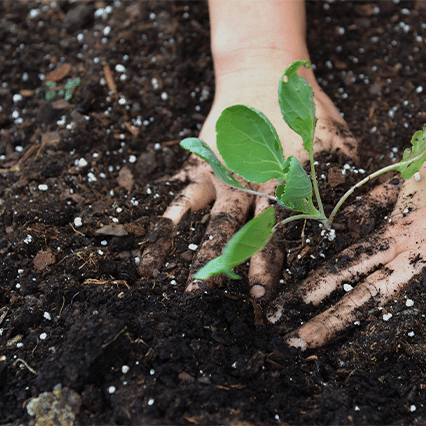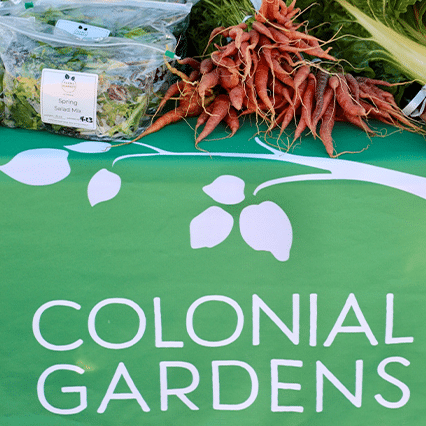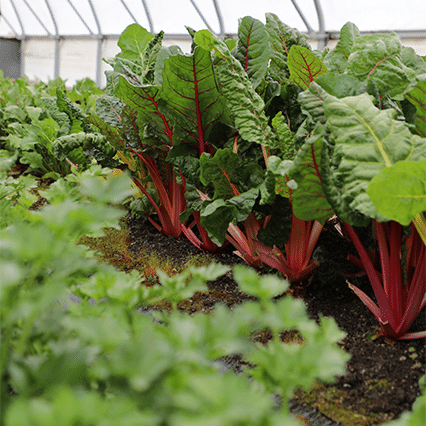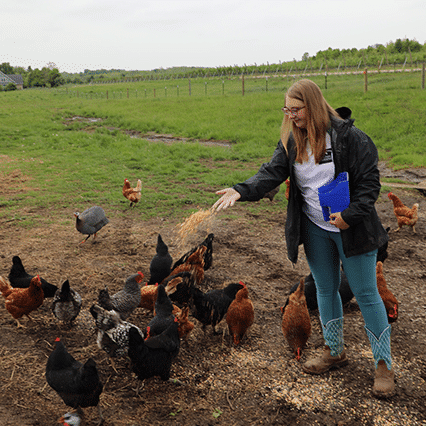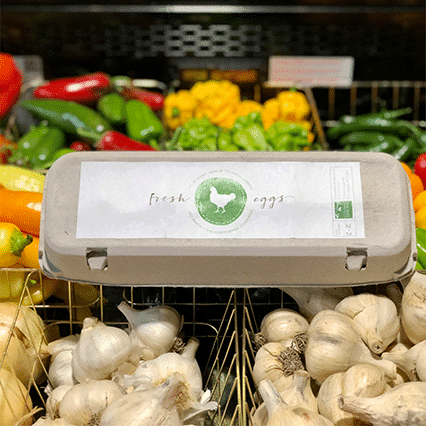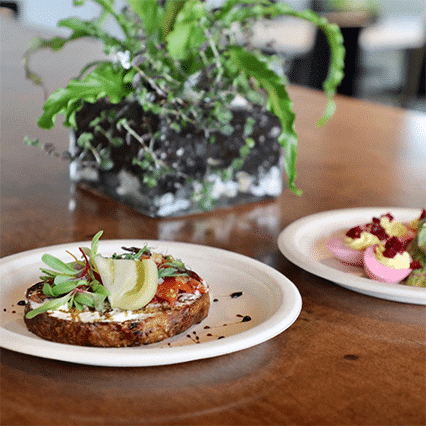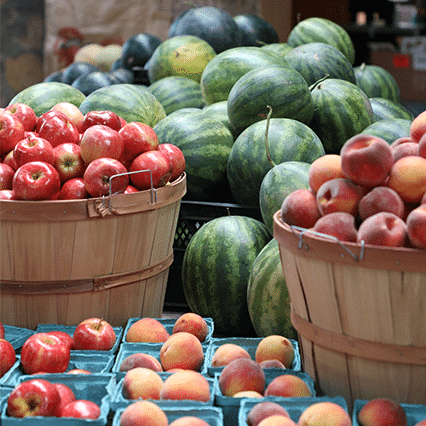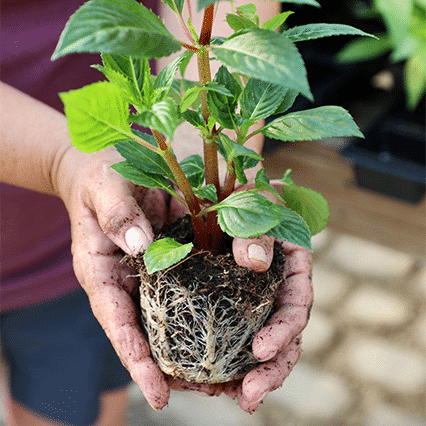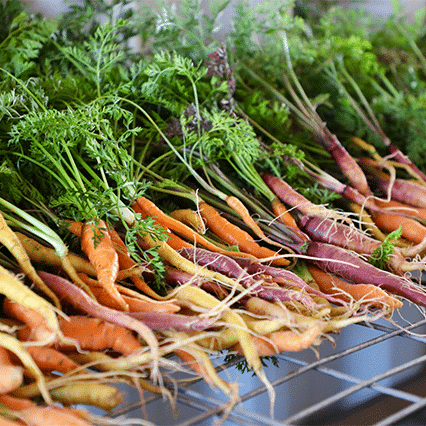What is Regenerative Agriculture & Why does Colonial Gardens practice it?
Jun 01, 2022
Share this post:
Here at Colonial Gardens our mission is to create a healthy planet by connecting mind, body and spirit to healthy plants and soil. The way we bring that mission to life is by practicing a growing method known as regenerative agriculture.
Regenerative agriculture is a farming method that aims at improving the earth by partnering with the ecosystem and recycling nutrients back into the soil. The main goal is to protect soil and water quality because it has an enormous impact on the rest of the environment.
If you aren’t a farmer, there are still plenty of ways to give back to the soil. In our greenhouses we try to minimize our plastic use by selling annuals as plugs or without a pot (bare root). We are currently researching new compostable pots for our greenhouse, but when plastic is necessary, we always try to reuse it. When pruning our plants or downsizing after a season, all of our green material goes to our compost.
In our store, we never give out plastic bags at our registers, instead, opting for paper bags or cardboard boxes. We also do not sell plastic pots of any kind.
On the Farm, everything has a cyclical relationship, meaning we all work together. First, our Market Gardener designs the garden to function with our soil and season. Then, compost is applied to the soil to supply nutrients and microbes and ultimately increase soil fertility. Then, we get to work planting, maintaining and finally harvesting our herbs, fruits and vegetables. We sell what we grow in our market along with a variety of products from other regenerative farmers across the Midwest.
Our restaurant, Colonial Kitchen, also uses our produce. All the ingredients used either come from Colonial Farms or from nearby farmers who practice regenerative methods. These ingredients are brought fresh every week. This creates a wide variety of dishes depending on what ingredients are in season. The plates, cups and silverware we serve to our customers are also compostable to limit unnecessary waste.
What doesn’t sell in the market or restaurant we feed to the chickens and pigs. If it’s not able to be used again on the farm it is put in our compost.
The livestock is the newest part of Colonial Farms. We have chickens, ducks, geese, cows, sheep, goats, pigs and alpacas; each animal produces something we can use in the market or restaurant. The chickens, ducks and geese produce eggs for the market, the cows and goats produce milk, and their young are sold as meat along with the lamb and pigs. Finally, the alpacas provide us with wool that we can turn into yarn.
The animals also play a role in the regenerative process. They are raised on a rotational grazing system designed to support native Missouri flora and fauna. The grass is grazed to about 50% of its original height before the animals are moved into the next paddock. This allows the grass time to rest and put down stronger roots. These stronger roots help protect the soil from erosion.
Colonial is trying to do our part to support the earth through regenerative practices and other sustainable methods and you can play a part too. The biggest contribution consumers can make is purchasing goods from businesses who use regenerative practices. By supporting these small businesses, it will inspire others to follow the same model.
You can also make more conscious buying decisions opting for biodegradable or recyclable products instead of plastic. Single-use or cheaply made products often end up in landfills and cause other issues. Look into the recycling requirements of your local neighborhood or find more ways to reuse your products.
Finally, consumers can educate themselves about the products and food they decide to purchase. Education helps us make more informed decisions about where to purchase and from whom.
While we try to make a local difference at Colonial, it will take communities working together to make a difference on a global scale.

